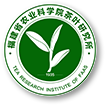Abstract:
In2009, the wild tea camellias in Niguping of Hubei Town in Jiaocheng Districtwas identified as a protected variety of Camellia sinensis by Fujian Province.After the cuttage, breeding and ex-situ conservation, the agronomic characters, seed emergence rate, survival rate ofplanting seedlings, resistance, yield, quality performance and biochemicalcomponents of the wild tea camellias were observed and identified. The resultsshowed that the wild tea camellias in Jiaocheng District were arbor form,large-leaf, and early-sprouting (middle-sprouting) cultivars; and the seedsetting rate of tea camellias through the natural hybridization with ex-situ cultivation was not high. The seed emergence rate was low on the whole, withan average of only 21.72%. The survival rate of JC-5 cutting seedlings was87.5%, while the survival rates of other plants such as JC-2 and JC-3 were alllower than 20%. JC-1 had weak resistance to disease and pest, while JC-2 andJC-5 had strong resistance to disease and insect and good adaptability. Theyield per plant of JC-2 was 2.92% higher than that of the control group, whilethe yield of JC-5, JC-1 and JC-3 was lower than that of the control group, andthe yield of plant with the lowest yield was over 70% lower than that of the controlgroup. The quality and flavor of tea were unique, with long aroma and bittertaste, all of which were bitter tea. The content of water extract and teapolyphenols were higher, and the content of caffeine was lower in JC-4 and JC-5(being 0.10% and 0.54%, respectively), which had the potential to develop thetea products with low caffeine. To sum up, after the transplanting of wild teacamellias in Jiaocheng District, through the cultivation and domestication, two individual plants with good comprehensive characters of JC-2 and JC-5 could bedirectly used for the production.




 下载:
下载: